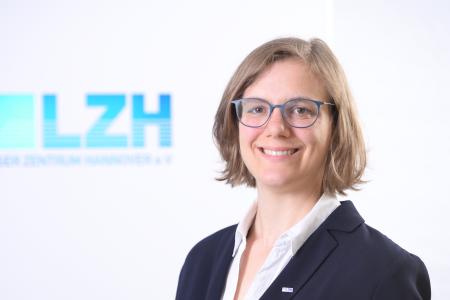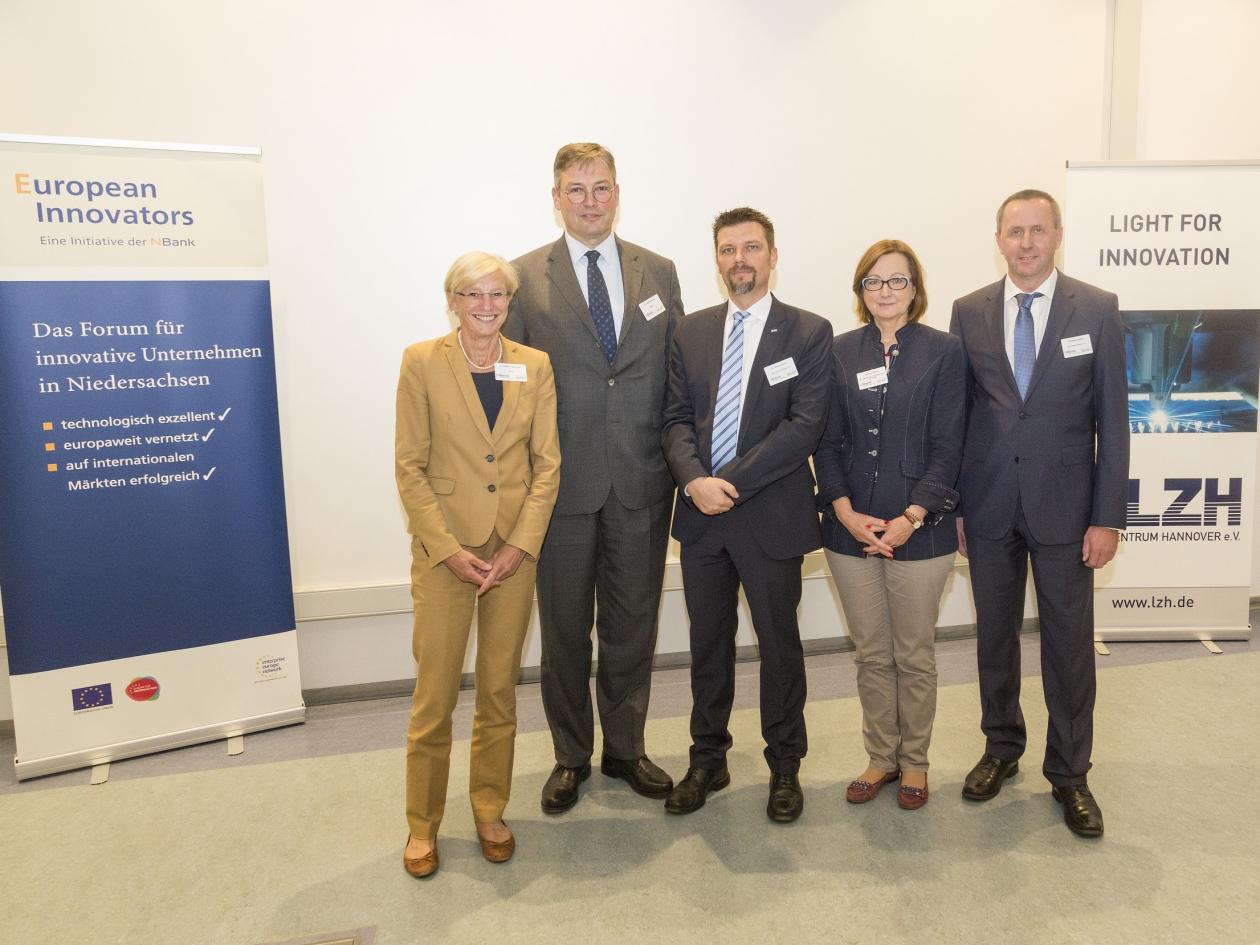Perspectives for medium-sized enterprises from Lower Saxony in the EU Framework Program Horizon 2020
Industry 4.0, additive manufacturing, lasers and photonics – which concrete research and development topics can be derived from these key words? And how can the medium-sized enterprises in Lower Saxony participate and benefit from these within the scope of the EU Framework Program Horizon 2020? To discuss with these questions, the NBank has organized the 6th EUROPEAN INNOVATORS-LOUNGE at the Laser Zentrum Hannover e.V. (LZH) on September 29th, 2016.
„EUROPEAN INNOVATORS“ is an initiative of the NBank that is targeted to enterprises and stakeholders who want to build networks to participate in the research and innovation funding programs of the EU. About 55 attendees from industry, research and politics in Lower Saxony accepted the invitation by the NBank and came to the LZH. During the tour guided by LZH Executive Director Dr. Dietmar Kracht, the laser researchers presented various future-oriented processes and technologies.
Horizon 2020: The EU on the way to the Innovation Union
Dr. Sabine Johannsen, Member of the Board of the NBank and of the Supervisory Board of the LZH, emphasized the opportunities for medium-sized enterprises in Lower Saxony in Horizon 2020. Besides the excellence in science, the program is dedicated to supporting industrial research. Both fundamental and application-oriented technologies are targeted in joint research projects with, in many cases, five or more partners. For the period from 2014 to 2020, about 80 billion € are available.
Experiences and future opportunities through photonics as a Key Enabling Technology (KET)
Afterwards, Dr.-Ing. Stefan Kaierle, Head of the Materials and Processes Department at the LZH, reported about knowledge, experiences and future opportunities through European research funding. “In the past, the LZH has not only successfully finalized many EU projects. The institute was also actively involved in the strategy process of the European Technology Platform Photonics21, and has thus contributed to establishing photonics as “Key Enabling Technology”, explained Kaierle.
Focus on SMEs: From spin-off company to project partner
On the example of flexible laser systems for micro material processing, Dr. Maik Frede, CEO of the neoLASE GmbH, described how medium-sized enterprises can successfully cooperate with research institutes in joint research projects. These lasers for instance were jointly developed by the LZH, neoLASE GmbH and another SME within the scope of a Eurostars project. “A research institute and an SME are an ideal combination of partners. They share the financial risk, and both partners contribute their individual strengths: The institutes their experience as well as the fundamental and application-oriented research – and the SMEs the speed and flexibility to be able to keep up with the ever shorter product introduction cycles and development times.”
Research institute + SME = winning formula
At the end of the well attended event, it was concluded that the cooperation between well established research institutes and SMEs is an optimum constellation for joint project proposals within the scope of Horizon 2020. Sound experience by the institutes on the one hand, and highly specialized SMEs on the other hand are a promising success formula – at least in the field of laser technology and photonics.
On September 28th, 2016, the NBank has published additional information, event and qualification offers as well as opportunities for cooperation and success stories at www.european-innovators.eu.
There are three figures for this press release.

